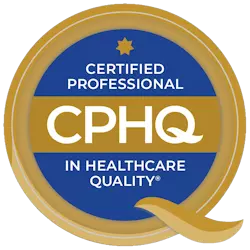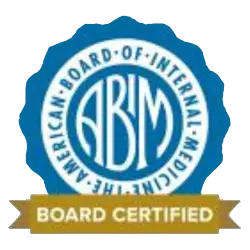Expert Witness in Infectious Diseases
As an Expert Witness in Infectious Diseases and Infectious Diseases Doctor with more than 20 years of experience, I understand the critical role that expert witnesses play in legal cases involving infectious diseases. Whether you’re dealing with medical malpractice, wrongful death, personal injury, or public health litigation, having an expert witness in infectious diseases can be a game-changer in the courtroom.
What is an Expert Witness?
An expert witness in the field of infectious diseases is a physician who specializes in diagnosing, treating and managing infections caused by various pathogens, including bacteria, viruses, fungi, and parasites. They are called upon to provide expert information in and testimony in legal disputes where an infectious disease is involved. Their testimony in court cases helps the judge and jury and other laymen in the courtroom understand the complexities of the infectious disease central to the litigation.
The Role of an Infectious Diseases Expert in Court Cases
The role of an infectious disease expert witness extends beyond just providing testimony. They analyze medical records, interpret lab results, and offer unbiased opinions on whether the standard of care was met in specific cases.
Medical Malpractice and Negligence
In medical malpractice or negligence cases, infectious disease experts assess whether the standard of care was met in preventing, diagnosing, or treating an infection. For example, in a case of alleged hospital-acquired infection, an infectious disease expert witness would assess whether appropriate infection control measures were followed and the appropriateness of the medical response.
Public Health and Safety Litigations
Experts are also pivotal in cases related to public health, such as outbreaks in communities, nursing homes or unsafe practices by companies leading to widespread infections. They analyze the epidemiological data and may testify about the source of the outbreak, the adequacy of response measures, and the impact on affected populations. For instance, during the COVID-19 pandemic, infectious disease experts were essential in court cases related to workplace safety, public health orders, and vaccine mandates. Their insights helped to shape legal standards and public policies in response to the health crisis.
Employment and Insurance Disputes
In the context of employment, infectious diseases experts might be called upon to determine if a worker's illness is work-related, impacting workers' compensation claims. Similarly, in insurance disputes, they can help ascertain whether the infection was a pre-existing condition or occurred due to a specific incident covered by the policy.
Perhaps the most important requirement of infectious disease expert witnesses is to show causality. Without tying the cause to the outcome, the case will either be lost or overturned as was the outcome in the 2011 appellate decision of Shenoy v. Jean1. In this wrongful death case appeal the court determined that the expert witness had not shown causality. The Court overturned the lower courts decision stating that the expert witness’ report offered “no explanation tying the conclusion to the facts or of how and why the breach [in the standard of care] caused the injury based on the facts presented.”
Expert Witness Importance in Infectious Disease Litigation
As you see, the testimony of an expert witness in infectious disease litigation can be pivotal. Expert witnesses provide clarity on medical jargon, making it accessible to the judge and jury. They can speak about how an infection occurred, how it could have been prevented, and the long-term effects on the patient. And, by tying each step in the chain of events that caused the outcome with how and why information, the court and jury can weigh the credibility of the expert’s opinion and, if a conflict occurs between two expert witnesses, decide which is more believable.
Expertise and Credentials of Infectious Disease Expert Witnesses
When searching for expert witnesses, understanding the expertise and credentials of an infectious disease expert is crucial for lawyers who are considering leveraging this specialized knowledge in their cases. The qualifications of an expert can significantly influence the credibility and strength of the testimony provided.
Credentials That Matter
An infectious disease expert witness typically holds an advanced degree in medicine, microbiology, epidemiology, or a related field. They hold an MD or DO designation, and have completed a 3 year internal medicine residency, and a 2-3 year infectious diseases fellowship. However, it’s not just the education that counts but also the hands-on experience and recognition in the field. Board certification in infectious diseases, membership in professional societies, and active involvement in research or public health initiatives are key indicators of an expert’s standing and commitment to their area of expertise.
Additionally, an expert witness best serves lawyers when they have taken expert witness training. Investing in expert witness training shows a commitment to understanding the process and what is expected of them in court. Being an infectious disease expert witness requires more than just being an infectious disease expert. Expertise is essential but understanding how to apply it in a legal proceeding is equally important. Good training programs will teach experts practical law, court procedures, how to write reports, and how to present evidence according to the Daubert Standard.
Real-Life Expertise in Action
Ultimately, it is experience in real-world situations, though, that sets apart a true expert. Lawyers should look for professionals who have a track record of dealing with infectious outbreaks, advising on infection control policies, or working in epidemic management. These experiences allow the expert to provide practical insights and relatable examples during their testimony.
The Impact of Credentials and Expertise
The credentials and real-life experiences of an infectious disease expert witness can profoundly impact legal proceedings. They bring a level of authority and persuasiveness to the testimony that can elucidate complex medical issues, sway opinions, and ultimately affect the outcome of a case. For lawyers, collaborating with a well-credentialed and experienced expert can be a strategic advantage in litigations involving infectious diseases.
Ultimately, the expertise and credentials of an infectious disease expert witness play a pivotal role in legal cases related to infectious diseases. These professionals not only bring a wealth of knowledge and experience to the courtroom but also lend credibility and depth to the legal arguments. For lawyers new to working with these experts, understanding the value they bring can be the key to leveraging their skills effectively in achieving legal success.

Twenty-three Questions to Ask When Hiring an Infectious Diseases Expert Witness
Asking the right questions before hiring an expert witness ensures the potential witness is a good fit for your case and can provide the testimony you need. Here are some important questions to consider:
Expertise and Experience
1. What is your educational background and professional training in your field of expertise?
2. How many years of experience do you have in your field?
3. Have you worked on cases similar to mine? Can you provide examples?
Legal Experience
4. How many times have you served as an expert witness?
5. In what types of cases have you provided testimony (depositions, trials, arbitrations)?
6. Can you provide references from attorneys or firms you've worked with in the past?
Case-Specific Questions
7. Are you familiar with the specific issues at hand in my case?
8. How do you approach the analysis and preparation of testimony for cases like this?
9. What are your initial thoughts on the strengths and weaknesses of my case from an expert perspective?
Availability and Commitment
10. Are you available to work within the timeline of my case?
11. Can you commit the necessary time to thoroughly review case materials and prepare for testimony?
Fees and Costs
12. What is your fee structure (hourly rate, flat fee, retainer)?
13. Are there additional costs for travel, research, or materials?
14. Do you require a retainer, and if so, how much?
Testimony and Courtroom Experience
15. How do you prepare for giving testimony, and how do you handle cross-examination?
16. Have you ever had your qualifications or testimony challenged in court? If so, what was the outcome?
17. Can you provide samples of your prior reports or testimony for review?
Conflict of Interest and Objectivity
18. Have you ever been disqualified as an expert witness? If so, why?
19. Do you have any potential conflicts of interest in this case?
20. How do you ensure objectivity and impartiality in your analysis and testimony?
Communication and Reporting
21. How do you communicate findings and updates to the legal team?
22. What is your process for preparing reports and other documentation needed for the case?
23. How do you handle confidential or sensitive information?
Asking these questions will give you a comprehensive view of the expert's qualifications, experience, and suitability for your case, helping you make an informed decision about their engagement.
Reference:
1Full Case Citation: Vasudev Shenoy and Dario Zuniga v. Penny Jean, Individually, and as Wrongful Death Beneficiary of Willie Anne Jean, Deceased, and on Behalf of the Estate of Willie Ann Jean, Deceased, and on Behalf of All Wrongful Death Beneficiaries of Willie Ann Jean, Deceased, No. 01-10-01116-CV, Court of Appeals For The First District of Texas, On Appeal from the 151st District Court, Harris County, Texas, Trial Court Case No. 2010-28302, MEMORANDUM OPINION.



